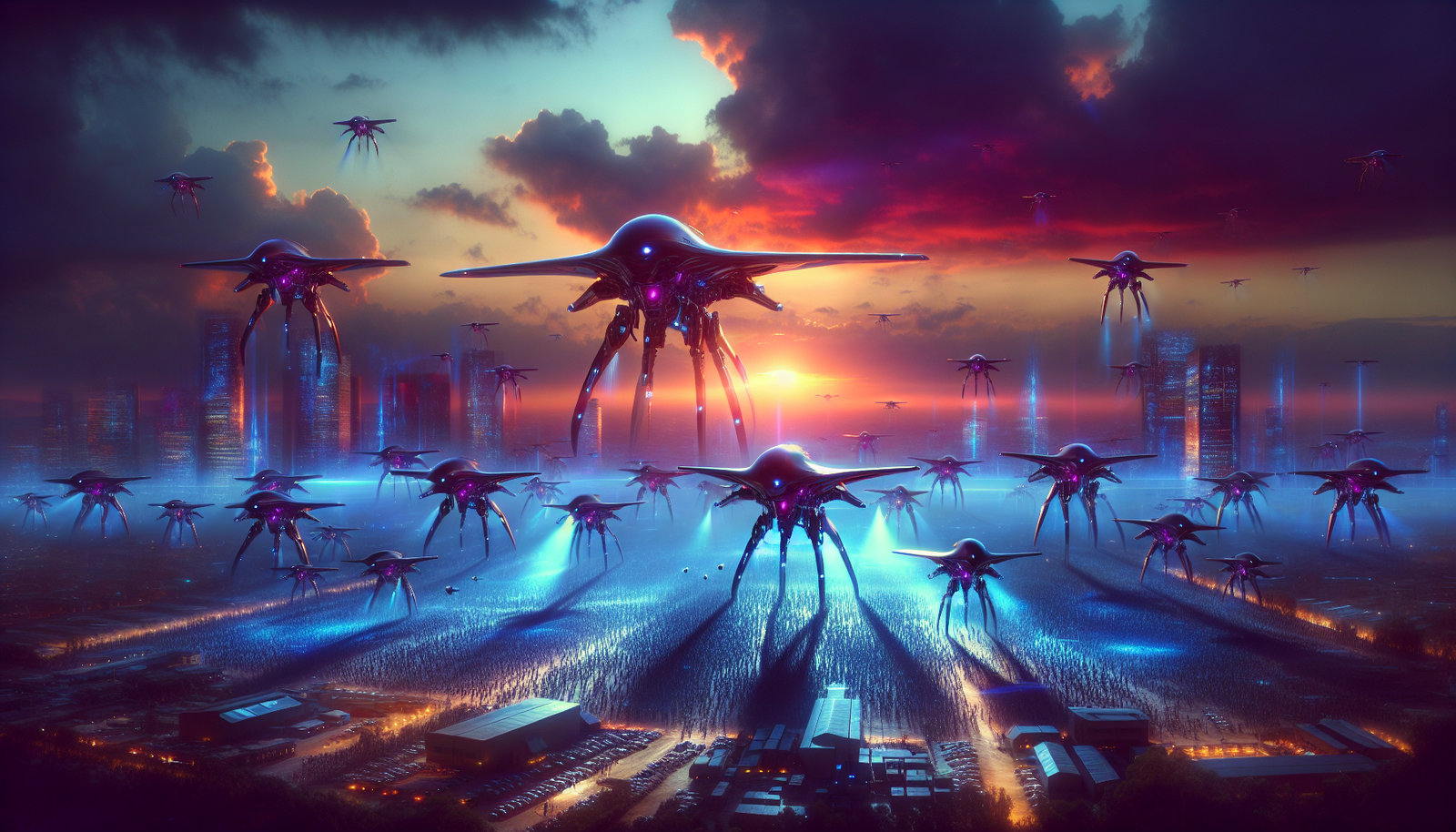The rise of military artificial intelligence raises unprecedented ethical and strategic questions. The ability of this technology to automate lethal decisions fundamentally challenges international law.
The implications go beyond mere efficiency.
Conflicts may escalate unpredictably, affecting thousands of innocent lives. The stakes of accountability and liability become inextricable.
The interaction between machines and humans is evolving at a dizzying pace, guided by impenetrable logics. Military artificial intelligence transforms the very nature of war.
The rise of military artificial intelligence systems
The emergence of artificial intelligence (AI) in military systems is radically transforming how war is conceived. The capability of machines to process information at lightning speed raises both ethical and strategic questions. AI is no longer limited to assisting soldiers but is beginning to play an active role in military decision-making.
Towards machine autonomy on the battlefield
The shift towards autonomous weapon systems responds to a quest for efficiency and precision. Armed drones capable of conducting reconnaissance and attack operations without direct human intervention illustrate this paradigm shift. Videos are circulating on social media, showing drones accompanied by an incessant buzzing, tracking targets with formidable accuracy.
The ethical and human implications
The growing use of AI in military operations raises questions about the responsibility of decisions. If a machine makes the decision to deploy lethal strikes without human supervision, what status should be assigned to the responsibility for human losses? This could lead to a dehumanization of the decision-making process, making armed conflicts more abstract.
The consequences of programming errors
A programming error in autonomous systems could cause massive loss of human life. The rapid evolution of these technologies increases the risk that decisions will be made without human supervisors being able to act. Such errors could also lead to an escalation of tensions, transforming localized conflicts into generalized wars.
Cyber weapons and modern strategies
Cyberattacks represent another area where AI influences military strategies. Autonomous malware capable of bypassing protections is now commonly used. The development of viruses such as Stuxnet marks the beginning of a new era of digital warfare. The combination of AI and cyber weapons can cause unprecedented damage, disrupting critical infrastructure without even a physical confrontation.
A duality of defense and attack
The use of AI in cybersecurity changes the rules of the game. Companies are developing AI systems to counter emerging threats in real-time. These tools allow for the detection and neutralization of attacks before they severely impact military or civilian operations.
The role of AI in future militarization
In light of this dynamic, nations must prepare for an increasing militarization of AI. The United States and other powers are seeking to strengthen their position with ambitious projects, such as those using AI to pilot planes like the F-16, a project called Venom. These developments fuel an arms race that could redefine the balance of power at the international level.
Collaboration and regulation of military AI
Collaboration between technology companies and government agencies is becoming essential to guide the development of military AI. The Blisk project is one example of this synergy, where technological innovation must be coupled with ethical considerations. The legislative framework surrounding the military use of AI must adapt to minimize potential abuses.
Urgent conclusion in the face of contemporary challenges
The challenges posed by the rise of military artificial intelligence extend beyond mere technical aspects. Nations must navigate a complex landscape where technology redefines human interactions on the battlefield. A strategic and ethical framework is essential to address this new reality in order to avoid disastrous consequences for humanity.
Frequently Asked Questions
What are the main implications of the rise of military artificial intelligence?
The implications are vast, including the possibility of increased autonomy of weapon systems, which raises ethical questions about life-and-death decisions without human intervention, and increased risks of escalated conflicts due to algorithmic errors.
How does artificial intelligence change the nature of armed conflicts?
AI transforms the nature of conflicts by allowing faster and more precise operations, while making weapon systems more lethal and autonomous, which can upset the balance of power among nations.
What ethical concerns are associated with the use of AI in warfare?
Ethical concerns include moral responsibility in the event of civilian casualties, the possibility of automating war crimes, and the dilemma of decision-making without human intervention.
Are autonomous weapons legally acceptable under international law?
Currently, autonomous weapons pose significant legal challenges, as international humanitarian law requires targeting decisions to be made by individuals, raising questions about the compliance of using AI in a military context.
What risks does military AI pose to global security?
Risks include an accelerated arms race, calculation errors leading to escalated conflict, and difficulty in establishing international norms for the control of these technologies.
How could AI affect international relations and diplomacy?
The introduction of military AI could create tensions between countries, distrust regarding the technologies employed, and the need to redefine rules of engagement on the battlefield.
What recent examples illustrate the use of AI in military contexts?
Examples include the use of autonomous drones for reconnaissance and targeted strikes, as well as AI systems for processing intelligence information, which influence strategic decisions on the ground.
How could civilian populations be affected by the rise of military AI?
Civilian populations could be more exposed to conflicts, suffer increased civilian casualties due to poorly targeted strikes, and be impacted by integrated surveillance systems associated with the use of AI in military operations.
What measures can the international community take to regulate military AI?
The international community can establish treaties to prohibit certain autonomous technologies, promote best practices for the ethical use of AI, and strengthen dialogue capabilities regarding the governance of these technologies.






